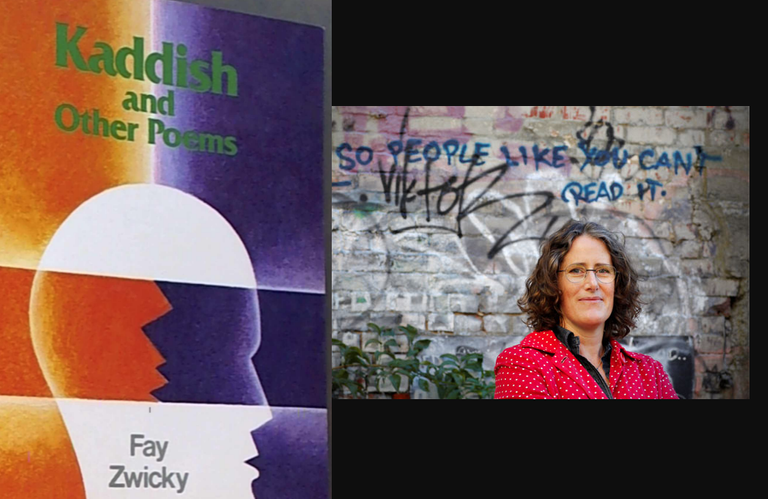Kate Camp and Fay Zwicky - Workshop 28/02/22

Hello, everyone.
Kate Camp was born in 1972 and lives in Wellington, New Zealand. She received both the Berlin Writers' Residency and the Katherine Mansfield Fellowship.
Fay Zwicky died in 2017 at the age of 83. A writer, scholar and critic, she was an Australian of Jewish descent.
Themes that are evident in the first text include the domestic and the nautical. Logic is also mentioned.
The second text is about marriage and the passage of time. Think about any of these themes and attempt to incorporate them into your writing today.
The structure of the first text makes use of the first-person voice: 'I'. Incorporate some 'I' statements into your work.
The poet is also a character in the second text. You could try to create a poem that mentions the poet who is writing it.
Six words to attempt to incorporate into your writing from Camp: view, next, horizon, house, whisper, step.
Six words from Zwicky: imagine, broken, modern, record, rituals, forget.
If you have a copy of The Exercise Book (Manhire, Duncum, Price & Wilkins), turn to "#40: False Starts" for an accompanying challenge.
That's all. I hope you are inspired to write today.
A Bit Off the Map
by Kate Camp
I live viewing the viewers not the view.
Other house-faces take the sea slap
I insinuate in private dunes.
And though he does not live
in that particular grinning street
of lights, that one or the next
I picture him, in the down halo
of a lightbulb, reading
back and forth on the horizon.
He acquires a nautical standing
his house a prow, his spying-glass eye,
aspects of him tellingly wooden.
Lulled by the roll of buses,
the expansive roars of whisper jets,
the one-by-one lights flicked off to bed
I am a refugee of logic
on that subject, insisting on
unlikely land with every step.
Starting Over in Autumn
by Fay Zwicky
Halfway wise when young,
who could foresee their stubborn mysteries,
their presumptions of innocence?
They intended to disappoint nobody.
Who could have warned them?
Who would have listened?
Can they imagine today what nobody knows,
the span of a human breath
coming and going?
He thinks she can.
She hopes he might.
And why, you ask, does the poet
(jotting under the broken angel's wing
at the bottom of the garden) sound off
such lamentatory alarms?
Observe the verdant celebrant in his hot suit.
He's not reading the sorrows of Job
unsuited to such modern occasions.
Is there anything you would like me to say?
He has a gold biro rolled behind his ear
for the record, smiles on the dotted line:
hello my friends
we are gathered...
What lasts is what they started with,
the faltering heart and something else.
Nothing won or absolutely lost,
still here imagining a place
where people work and pray and sleep,
the tender rituals of surrender.
Time has changed sides, no longer on theirs.
She almost knows.
He doesn't want to know and doesn't
know he doesn't.
The poet doesn't like those lines.
Forget the poet at the garden's end,
what he knows and can't forget.
He's called today a day like any other.
The earth's still green,
birds hop in the yard in hopeful rain,
the young still wait, gravid with yearning.
Pray for them, their children, and those birds.
Let them attend the grace of candour or whatever
waits behind the soul's clear windows.